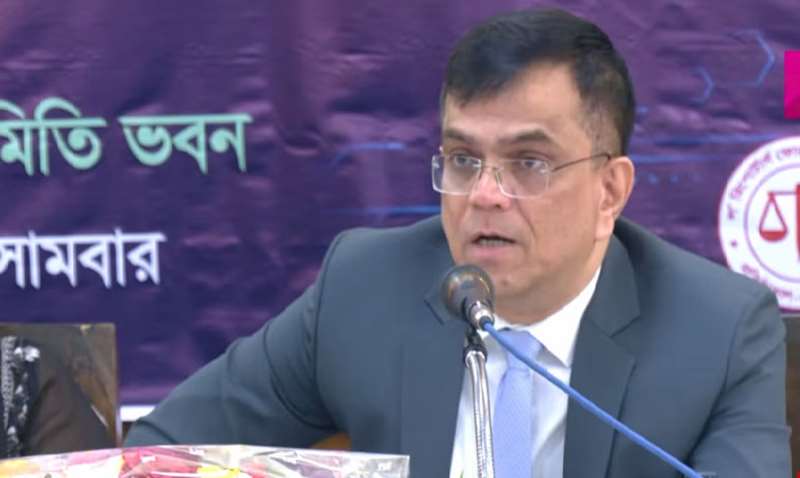Some sections of cyber law are dangerous for journalists

High Court Judge Sheikh Hasan Arif gave a speech at the workshop titled 'Cyber Security Law and Legal Journalism'. South Hall of Supreme Court Lawyers Association Building on Monday Photo: Collected
In a recent workshop organized by the Law Reporters Forum at the Supreme Court Bar Association, Justice Sheikh Hassan Arif from the High Court Division expressed concerns over the potential threat to press freedom posed by certain sections of the Cyber Security Act. The workshop, held on Monday, provided a platform for legal experts to discuss and analyze the implications of the controversial law.
Justice Arif highlighted five specific sections—22, 23, 25, 27, and 28—that, in his view, could have a serious impact on journalism. He particularly focused on Section 22, which deals with digital or electronic fraud. The justice raised concerns about the definition of fraud, emphasizing the potential for differing interpretations by various governments and ministers, given the prevalent intolerance in the political environment.
Drawing attention to the historical context of political intolerance since 1991, Justice Arif warned that the Cyber Security Act could be wielded as a tool to suppress opposition parties, with journalists becoming unintended victims in the process. He underscored the vulnerability of journalists in the face of criticism, emphasizing the need for safeguards against arbitrary arrests and torture.
Referring to Section 29 of the Cyber Security Act, Justice Arif contested the government's assertion that the law is journalist-friendly. While acknowledging the elimination of imprisonment for defamation, he echoed concerns raised by organizations like Reporters Without Borders, suggesting that the overall impact of sections 22, 23, 25, 27, and 28 could endanger journalists.
Contrary to Justice Arif's apprehensions, Attorney General Abu Mohammad Amin Uddin, also present at the workshop, reassured participants that there is no reason to worry about the Cyber Security Act. He emphasized that adhering to accurate reporting would ensure journalists face no repercussions, and in case of any dispute, the matter could be addressed in court.
The workshop's chief guest, Senior Justice M Enayetur Rahim from the Appellate Division of the Supreme Court, did not directly comment on the concerns raised but provided an esteemed presence at the event.
As discussions surrounding the Cyber Security Act continue, the conflicting perspectives of Justice Sheikh Hassan Arif and Attorney General Abu Mohammad Amin Uddin underscore the ongoing debate over the balance between national security and press freedom in the evolving legal landscape.










পাঠকের মন্তব্য